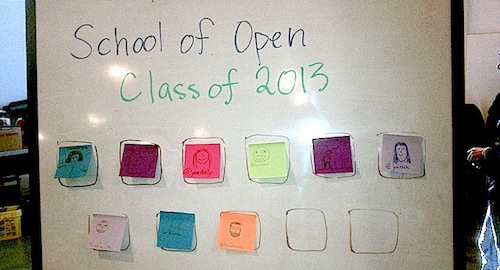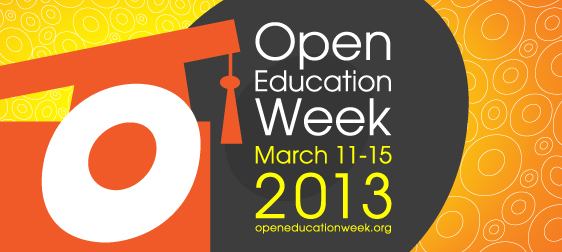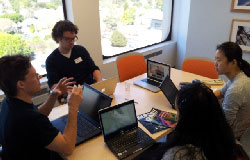Welcome to the School of Open, Class of 2013
mardi 12 mars 2013 à 17:10Happy Open Education Week! We are happy to announce that the School of Open community has launched its first set of courses…

The Library of Congress / No known copyright restrictions
Sign up for these facilitated courses
this week (sign-up will remain open through Sunday, March 17). These courses will start the week of March 18 (next week!). To sign up, simply click the “Start Course” button under the course’s menu navigation on the left.
- Copyright 4 Educators (US) – Sign up if you’re an educator who wants to learn about US copyright law in the education context.
- Copyright 4 Educators (AUS) – Sign up if you’re an educator who wants to learn about Australian copyright, statutory licenses and open educational resources (OER).
- Creative Commons for K-12 Educators – Sign up if you’re a K-12 educator (anywhere in the world) who wants to learn how to find and adapt free, useful resources for your classroom, and incorporate activities that teach your students digital world skills.
- Writing Wikipedia Articles: The Basics and Beyond – Sign up if you want to learn how to edit Wikipedia or improve your editing skills — especially if you are interested in and knowledgeable about open educational resources (OER) (however, no background in this area is required).
All other courses are now ready for you to take
at any time, with or without your peers. They include:
- Get a CC license. Put it on your website – This course is exactly what the title says: it will help you with the steps of getting a CC license and putting it on your work. It’s tailored to websites, although the same steps apply to most other works.
- Open Science: An Introduction – This course is a collaborative learning environment meant to introduce the idea of Open Science to young scientists, academics, and makers of all kinds. Open Science is a tricky thing to define, but we’ve designed this course to share what we know about it, working as a community to make this open resource better.
- Open data for GLAMs (Galleries, Libraries, Archives, Museums) – This course is for professionals in cultural institutions who are interested in opening up their data as open culture data. It will guide you through the different steps towards open data and provide you with extensive background information on how to handle copyright and other possible issues.
- Intro to Openness in Education – This is an introductory course exploring the history and impacts of openness in education. The main goal of the course is to give you a broad but shallow grounding in the primary areas of work in the field of open education.
- A Look at Open Video – This course will give you a quick overview of some of the issues, tools and areas of interest in the area of open video. It is aimed at students interested in developing software, video journalists, editors and all users of video who want to take their knowledge further.
- Contributing to Wikimedia Commons – A sister project of Wikipedia, Wikimedia Commons is a repository of openly licensed images that people all over the world use and contribute to. This challenge gets you acquainted with uploading your works to the commons.
- Open Detective – This course will help you explore the scale of open to non-open content and how to tell the difference.
And more… check out all the courses at http://schoolofopen.org/.
Join a launch event this week

School of Open at the Citizen Science Workshop / Levi Simons / CC BY
- P2PU: A Showcase of Open Peer Learning (Wednesday, March 13) – Join this webinar to see a showcase of some of P2PU’s best learning groups spanning topics from education to open content to programming to Spanish and more, and learn how you can participate.
- Open Video Sudan (all week, March 10-17) – Join the Open Video Forum in improving “A Look at Open Video” and creating new courses and resources on open video in Sudan.
And more events as part of Open Education Week at http://www.openeducationweek.org/events-webinars/.
Spread the word
Just do these 3 things and call it a day.
- 1. Tweet this:
#SchoolofOpen has launched! Take free courses on #copyright, #OER, #openscience & more: http://creativecommons.org/?p=37179
- 2. Blog and email this:
The School of Open has launched! Take a free online course on copyright, CC licenses, Wikipedia, open science, open culture, open video formats, and more at http://schoolofopen.org/. Especially check out this course: [link to course of your choice here]. Read more about the launch at http://creativecommons.org/weblog/entry/37179.
- 3. Print out a copy of this pdf and pin it to the bulletin board at your work, school, or local coffee shop.







